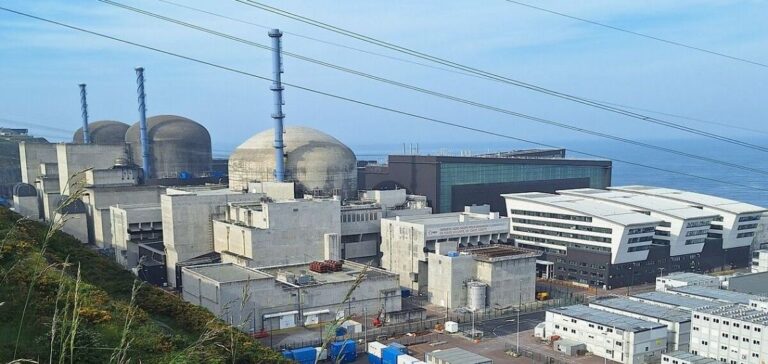The European Pressurised Reactor (EPR) nuclear reactor at Flamanville, located in the Manche department, was briefly shut down and disconnected from the power grid between Friday and Saturday, according to a statement by Électricité de France (EDF) reported by AFP on April 26. This shutdown was triggered by the protection mechanisms of the alternator without causing an automatic shutdown of the reactor itself.
A precautionary shutdown before a controlled restart
EDF’s management specified that the reactor was shut down at the initiative of the plant’s operating teams on Friday at 10:41 am. This procedure was intended to carry out the necessary verifications before securely reconnecting to the grid. The reactor was reconnected on Saturday at 7:36 pm, allowing the site’s power ramp-up to continue.
The Flamanville EPR reactor, recently brought back online after two months of maintenance downtime, is undergoing a gradual power increase phase. EDF emphasised that this temporary shutdown does not affect the production targets set for summer 2025.
A closely monitored ramp-up phase
EDF had previously indicated that the ramp-up phase of this reactor, the fifty-seventh in the French nuclear fleet, would involve a series of scheduled maintenance shutdowns and possible unplanned operations. The company highlighted that more than 1,500 safety criteria are tested during this initial startup phase.
The third-generation reactor, connected to the national grid on December 21, 2024, after a twelve-year delay, marks a major milestone for the French nuclear programme. The enhanced monitoring of the ramp-up process aims to ensure compliance with established safety standards.






















